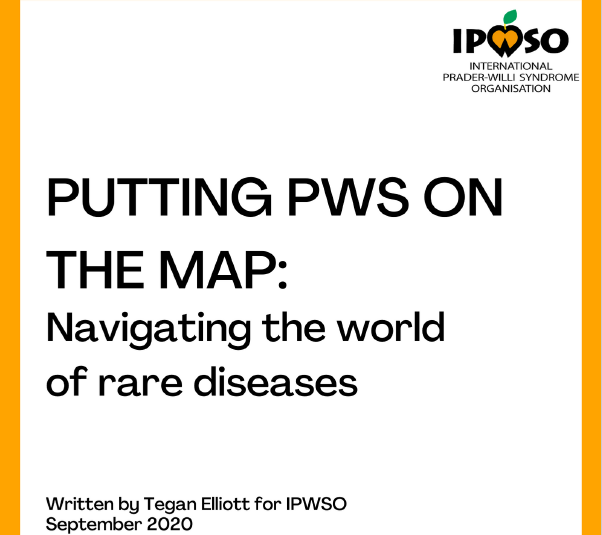What are the challenges of discussing Prader-Willi syndrome at an international level and how can we make sure that the needs of people with PWS are included when decisions and new policies are made?
At IPWSO we engage with international organisations to advocate on behalf of people with Prader-Willi syndrome at a global level. It is important for us to work with others across the fields of rare diseases, disability and human rights to ensure that the particular needs of people with PWS and their families are included in policy and decision-making.
A rare disease such as PWS affects only a small percentage of the population, but collectively rare diseases are not rare, affecting over 300 million people worldwide. The common challenges affecting people with rare diseases must be tackled internationally as well as ensuring that specific challenges are also highlighted.
This year we worked with a student, Tegan Elliott, from the London School of Economics to take a closer look at the world of rare diseases, where the influence lies and how we can get more involved and make a real difference.
Tegan interviewed people from rare disease organisations and PWS experts around the world and made a number of recommendations based on the information she gathered. In particular she noted that we should work more closely with the international bodies that hold the greatest influence.
We are already members of Global Genes Rare Foundation Alliance, Rare Diseases International and the International Alliance of Patients’ Organizations and we will seek to join EURORDIS and the NGO Committee for Rare Diseases in the near future.
National PWS associations can also play an important role in working with rare disease organisations in their own country. They often have useful contacts and are in touch with policy makers and have good knowledge of the support available. Where there is no PWS association the rare disease organisation may be the first port of call for a family looking to connect with others.
We have produced a useful summary of Tegan’s report for the benefit of PWS associations.

